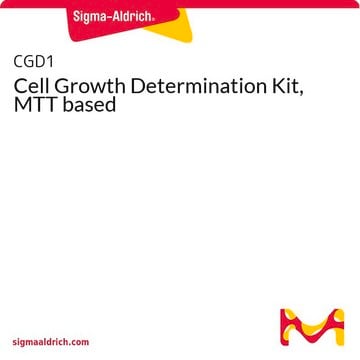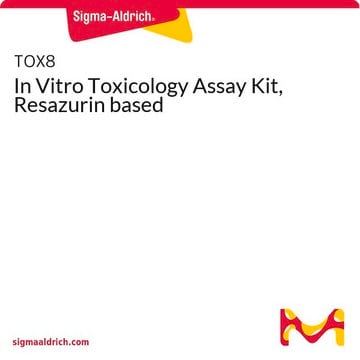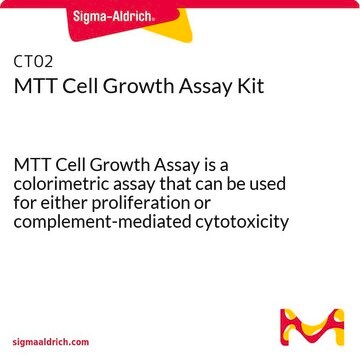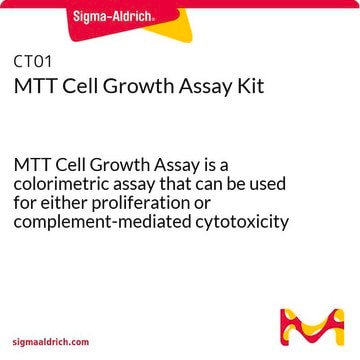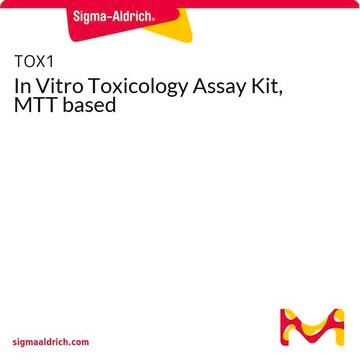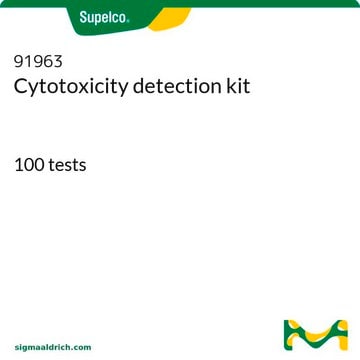QIA127
Rapid Cell Proliferation Kit
Synonym(s):
Proliferation assay kit
About This Item
Recommended Products
usage
sufficient for 500 tests
Quality Level
packaging
pkg of 1 96-well plate(s)
manufacturer/tradename
Calbiochem®
storage condition
OK to freeze
avoid repeated freeze/thaw cycles
protect from light
input
sample type cultured cells (1,000-50,000 cells)
detection method
colorimetric
shipped in
wet ice
storage temp.
−20°C
General description
Features and Benefits
Components
Warning
Specifications
Principle
Preparation Note
Other Notes
Liu, S.O., et al 1995. Nat. Med.1, 267.
Ishiyama, M., et al. 1993. Chem. Pharm. Bull.41, 1118.
Legal Information
Storage Class Code
10 - Combustible liquids
Certificates of Analysis (COA)
Search for Certificates of Analysis (COA) by entering the products Lot/Batch Number. Lot and Batch Numbers can be found on a product’s label following the words ‘Lot’ or ‘Batch’.
Already Own This Product?
Find documentation for the products that you have recently purchased in the Document Library.
Customers Also Viewed
Articles
Cell based assays for cell proliferation (BrdU, MTT, WST1), cell viability and cytotoxicity experiments for applications in cancer, neuroscience and stem cell research.
Cell based assays for cell proliferation (BrdU, MTT, WST1), cell viability and cytotoxicity experiments for applications in cancer, neuroscience and stem cell research.
Cell based assays for cell proliferation (BrdU, MTT, WST1), cell viability and cytotoxicity experiments for applications in cancer, neuroscience and stem cell research.
Cell based assays for cell proliferation (BrdU, MTT, WST1), cell viability and cytotoxicity experiments for applications in cancer, neuroscience and stem cell research.
Our team of scientists has experience in all areas of research including Life Science, Material Science, Chemical Synthesis, Chromatography, Analytical and many others.
Contact Technical Service


